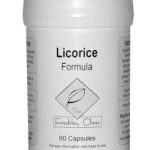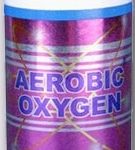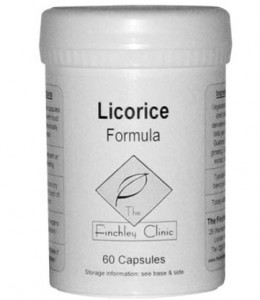Like it or not, there’s no scientific research to actually suggest cold, wintry weather on its own makes someone ill. Although lower temperatures cause blood vessels to constrict, thus reducing blood flow and slowing the spread of protective blood cells throughout the body1, it’s always viruses and harmful bacteria that are most likely to make you unwell this time of year – that’s what we’re referring to when we say ‘catching a chill’ or ‘a cold’, yet some of them are just as easy to catch in the warmer months2, 3.
Maybe why such illnesses infect more people in winter is simply because we tend to stay indoors and in closer contact with each other this time of year, ensuring they’re able spread among us all more4. But exactly what sort of complaints are we talking about – and what can you do to prevent catching them?
Common complaints
Seasonal complaints in the winter usually consist of:
• Colds – most adults are likely to catch two or three colds each year5 and, perhaps because of the ‘common cold’ moniker, they’re especially associated with cold weather; they’re caused by viral infections, their most usual versions being human rhinoviruses (HRVs)6, and as if you need telling, symptoms include a runny nose, a cough, a sore throat, headaches and sometimes mild aches in the body7
• Norovirus – a nasty ailment, this one’s a contagious gastrointestinal complaint that results in nausea, vomiting and a watery stool; it’s often referred to as the ‘vomiting bug’ in the UK, tending to play havoc in highly populated communities like hospitals, schools and nursing homes as it spreads easily via inhaling virus particles, eating food contaminated by someone who’s been infected or touching a contaminated surface8
• Sore joints – if you suffer from inflamed joints, then it’s likely your joints are attuned to atmospheric pressure changes (that is, temperature alterations), thus they may be more painful when it gets colder; moreover, they may be stiffer in winter simply because you’re more sedentary this time of year9
• Influenza – flu symptoms are similar to but worse than those of colds (we’re talking chills, fevers and aches); don’t allow the flu to escalate because it could lead to pneumonia or even threaten your life10, so make sure you stay at home, get rest, hydrate yourself and recuperate properly11 and be aware that those infected tend to remain so for up to a week after their symptoms dissipate12.
Prevention – better than a cure
Ensuring your immunity’s firing on all cylinders so you avoid getting ill in the first place is obviously advisable, so try following these steps:
• Eat sensibly – a poor diet leading to high glucose consumption can result in oxidative stress in the blood13, which can weaken your immunity14; to prevent this you might try to prioritise beans, citrus fruits and leafy greens in your diet
• Remain active – regular exercise may not be very appealing in winter but, as it supports the immune system, it aids blood circulation, enabling white blood cells to spread around the body effectively and fight harmful organisms; it also combats stress15 and seasonal affective disorder (SAD)16
• Sleep hygiene – if you sense you’re coming down with something or – because of that – you’re feeling unnaturally tired, get some rest and good sleep, as it’s during your sleep cycle that your immune cells are most active17; indeed, constant sleep deprivation can see the body enter a pro-inflammatory state in just eight days18
• Hand-washing – by touching contaminated surfaces and then touching your face, you can inevitably become infected with harmful pathogens19, so always and regularly wash your hands
• Gargling – believe it or not, gargling salt water may help prevent upper respiratory infections; indeed, research suggests that gargling green tea may be better than gargling water to stop children developing fevers20.
Supplements
As mentioned above, a good diet (that is, genuine nutrition) is essential to staying fit and healthy in winter and not catching colds, bugs, the flu or anything else. If you’re not getting enough nutrition from your diet, though, you can always try winter supplements; the following are all available from us at The Finchley Clinic:
 Licorice formula (adrenal maintenance) (60 capsules) – a botanical product designed to maintain healthy adrenal function, vital for a balanced immune system.
Licorice formula (adrenal maintenance) (60 capsules) – a botanical product designed to maintain healthy adrenal function, vital for a balanced immune system. 
OptiBac Probiotics (30 capsules) – an advanced formula of probiotics and antioxidants to support the body’s resistance to infection and promote a healthy immune system. 
Aerobic Oxygen (60ml) – users of this supplement claim it provides benefits in maintaining energy and the health of the immune system.
References
1. Eccles, R. ‘Acute Cooling of the Body Surface and the Common Cold*’. Cardiff University, United Kingdom: n.p., 2002.
2. ‘Flu Virus Fortified In Colder Weather’. National Institutes of HEALTH. National Institutes of Health (NIH), 2016 Mar 30.
3. Becker R. A., Zimmer C. and Eck A. ‘Scientists Finally Prove Why Cold Weather Makes You Sick’. PBS. NOVA Next, 2015 Jan 12.
4. Choices, NHS. ‘10 winter illnesses’. Department of Health. 2016 Sep 30.
5. ‘Common Colds: Protect Yourself and Others’. Centers for Disease Control, 2016 Feb 8.
6. Ikäheimo, T. M et al. ‘A Decrease in Temperature and Humidity Precedes Human Rhinovirus Infections in a Cold Climate’. Viruses 8.9 (2016): 244.
7. ‘Common Cold and Runny Nose’. Centers for Disease Control. 2016 Mar 16.
8. ‘Norovirus’. National Health Institute. Department of Health, 2016 Sep 30.
9. ‘Weather Related Arthritis Symptoms: Medical Fact or Fiction?’ N.p.: University of South Carolina School of Medicine, 2010.
10. ‘Cold Versus Flu’. Centers for Disease Control. 2016 Aug 11.
11. ‘Cover your cough’. Centers for Disease Control and Prevention. 2015 Aug 14
12. ‘How Flu Spreads’. Centers of Disease Control. 2013 Sep 12.
13. Mohanty P. et al. ‘Glucose Challenge Stimulates Reactive Oxygen Species (ROS) Generation by Leucocytes’. The Journal of Clinical Endocrinology and Metabolism. 85.8 (2000): 2970–3.
14. Evans, P. and Halliwel B. ‘Micronutrients: Oxidant/antioxidant Status’. British Journal of Nutrition 85.S2 (2001): 67–74.
15. ‘Exercise and immunity’. Medline Plus. 2016 Nov 1.
16. ‘Seasonal Affective disorder’. Medline Plus. National Library of Medicine. 12
17. ‘Sleep and Immune Function’. Pflugers Archive 463.1 (2011): 121–137.
18. Besedovsky L., Lange T. and Born J. ‘Sleep and Immune Function’. 463.1 (2011): 121–137.
19. ‘When & How to Wash Your Hands’. Centers for Disease Control. 2015 Sep 4.
20. Noda T. et al. ‘Gargling for Oral Hygiene and the Development of Fever in Childhood: A Population Study in Japan’. Journal of epidemiology. 22.1 (2011): 45–9.

